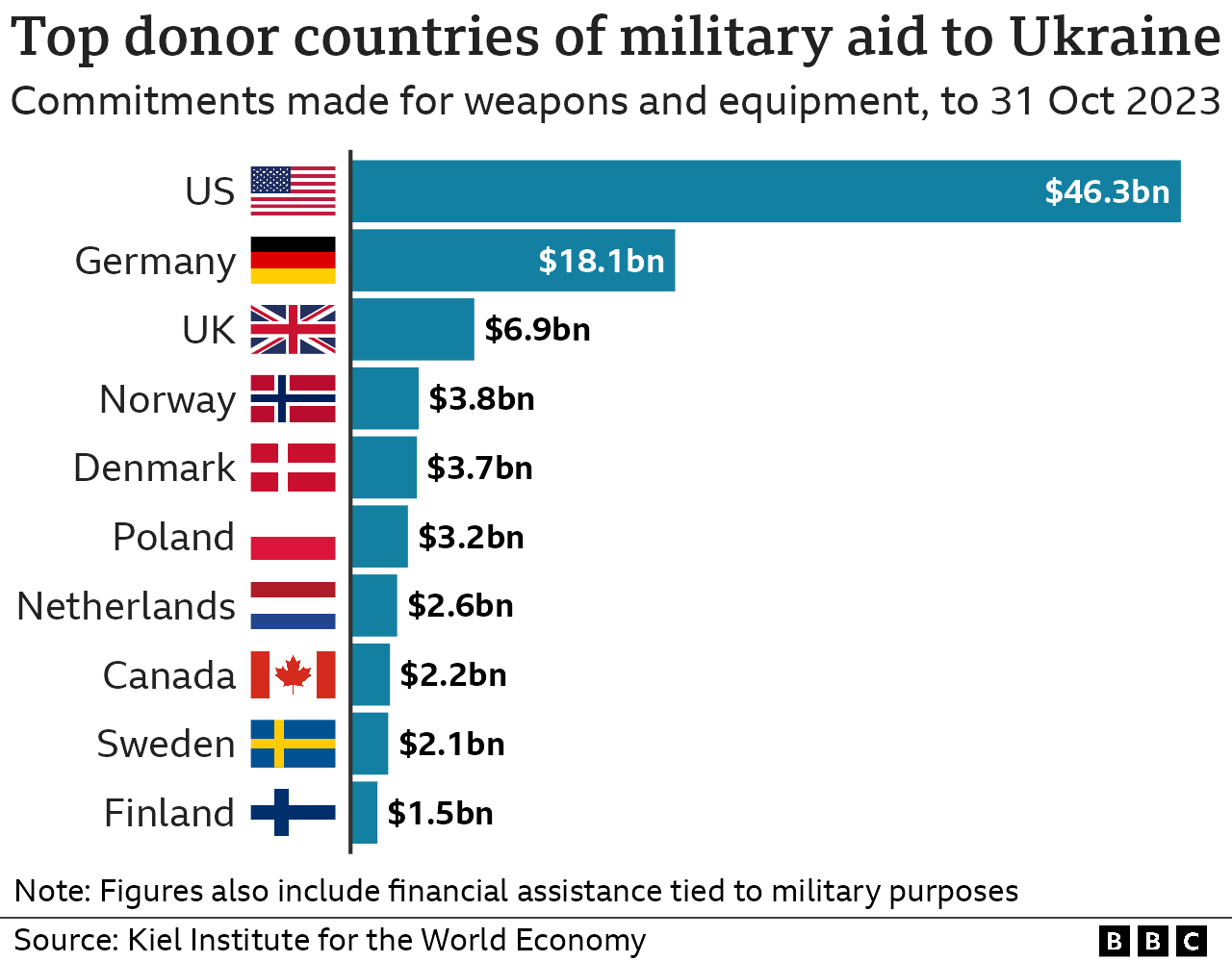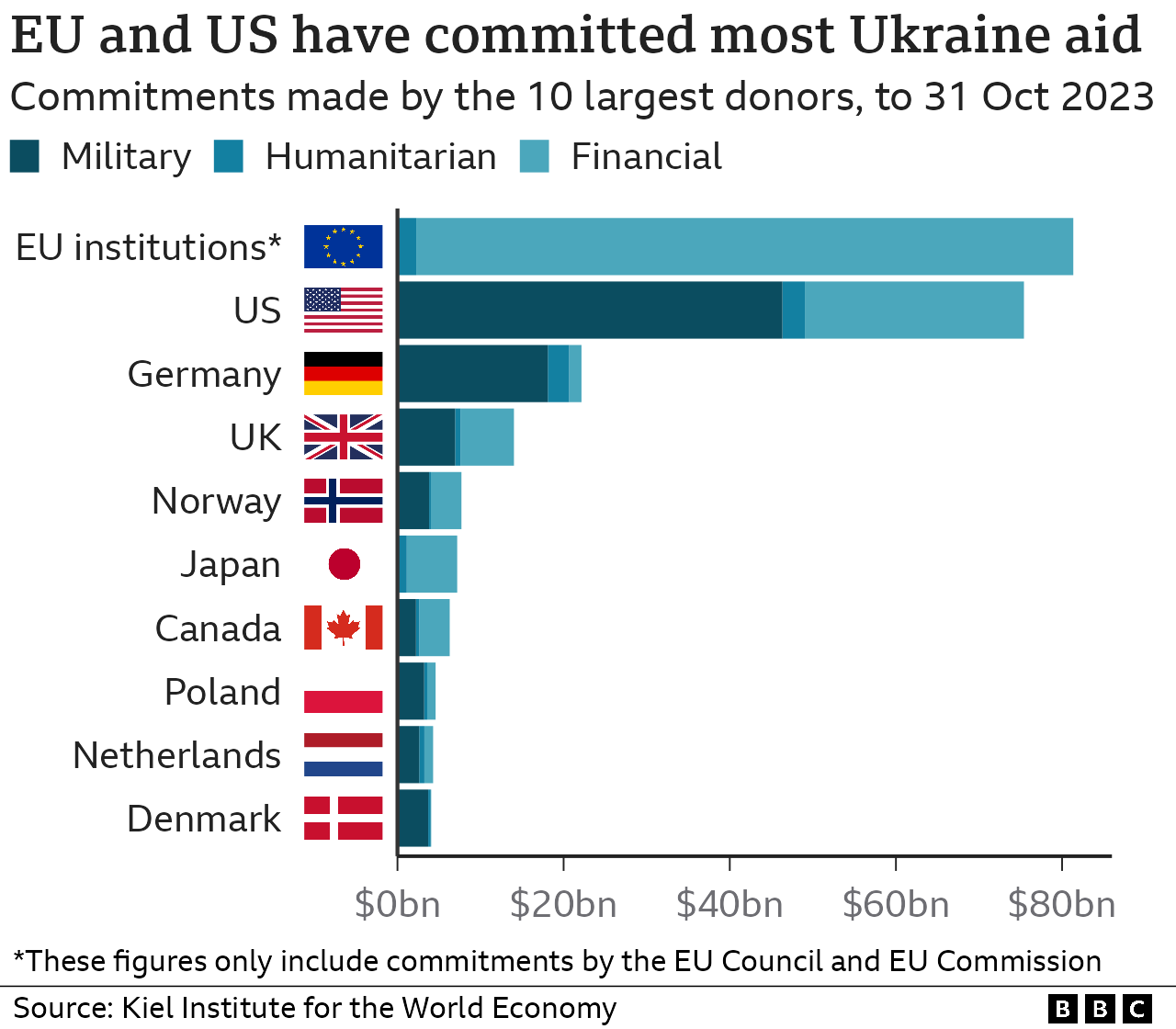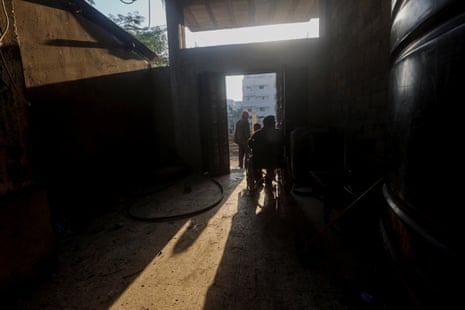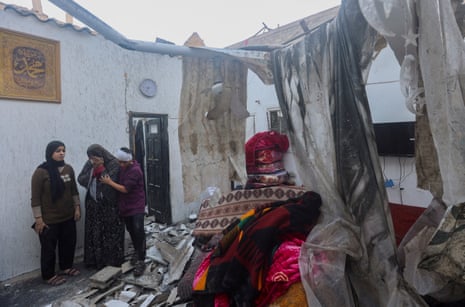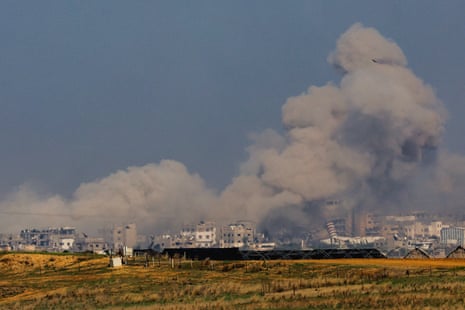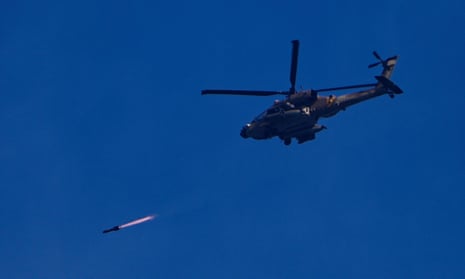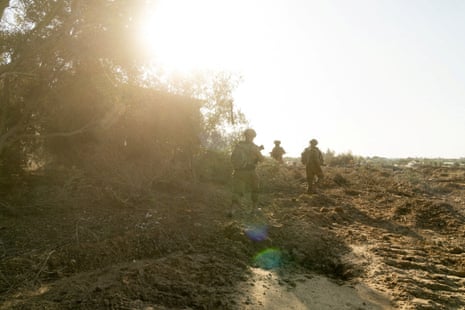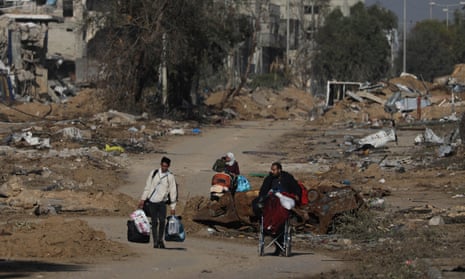The UN secretary-general says Gaza is facing a “severe risk of collapse of the humanitarian system”. António Guterres has invoked a rarely used article to push for a ceasefire. His letter to the council said Gaza’s humanitarian system was at risk of collapse after two months of war that has created “appalling human suffering.”
Guterres invoked Article 99 of the UN Charter, which says the secretary-general may inform the council of matters he believes threaten international peace. He is expected to address the council to press for a cease-fire.
But Israel’s UN Ambassador Gilad Erdan has reacted to the move, saying the secretary-general invoked Article 99 to pressure Israel, accusing the UN chief of “a new moral low” and “bias against Israel.”
Displacement, hunger, lack of medical care and clean water, while women and children are struggling to cope with the onset of winter, the CARE International charity is warning.
The charity, which has worked in Gaza since 1948, made its comments to coincide with the two-month mark of the armed conflict in Gaza. It warned that the war is disproportionally affecting women and children, with almost 70% of those killed in Gaza since 7 October women and children.
Hiba Tibi, CARE Acting Deputy Regional Director for the Middle East and North Africa, said:
One month ago, I thought the suffering could not get any deeper, but the downward spiral keeps worsening.
We are seeing women and children across the Gaza Strip under immense stress, confronted with unthinkable horrors. Child mortality, hunger, and psychological trauma are all reaching unprecedented highs. The current situation is bringing them to breaking point, making anything beyond focusing on survival impossible.
Mothers eat once per day in favour of their children’s health. Lack of medical care, hygiene, and high levels of malnutrition while living in overcrowded shelters are a poisonous mix, and we fear the numbers of women and children dying of otherwise preventable and treatable diseases will rise
Mothers are telling us their children have stopped speaking or eating because of what they have seen and lived through. Others are crying and screaming with every loud sound they hear. Two months of war have traumatised an entire generation of children.
Our team has spoken to doctors who must perform C-sections without anaesthesia and see mothers who lose their babies right after giving birth because there is no power to run incubators that could keep them alive.
Aaron Brent, CARE West Bank and Gaza Acting Country Director, said:
In Gaza, women are the last to eat and children are the first to die. The tragic reality for children is that they are hiding to survive the bombing, mourning dead parents and siblings, fleeing with their families, or collecting firewood to keep warm instead of playing or going to school. Education is a forgotten dream for children terrified this day might be their last.
CARE is calling for civilian lives to be protected, for the immediate release of hostages, thorough and prompt investigations of rape and gender-based violence, a full flow – rather than trickle – of humanitarian aid through all border crossings in Gaza, and an immediate lasting ceasefire.
The Australian foreign affairs minister, Penny Wong, has acknowledged “there are increasingly few safe places” for civilians in Gaza and has joined the US in warning that Israel risks “strategic defeat”, the Guardian’s foreign affairs correspondent Daniel Hurst reports.
Wong conceded on Thursday that her language about the conflict did not go “as far as some might want” but said this “does not diminish our concern for the numbers of civilian casualties that we are seeing”.
On the final parliamentary sitting day of the year, Wong also described the end of the weeklong “pause” in hostilities as a “grave setback”.
The assistant minister for foreign affairs, Tim Watts, said he would “travel to Qatar, Egypt, Israel and the Occupied Palestinian Territories” this week to try to prevent the conflict from spreading and to push for “a just and enduring peace”.
Israelis are celebrating the Jewish festival of Hanukkah in a more solemn fashion than usual this year. Here are some photos.



It’s past 9am in Gaza and Tel Aviv. Here’s a summary of the latest developments:
The EU’s foreign policy chief Josep Borrell has backed the UN secretary-general in his decision to invoke article 99 of the UN charter. Borrell says “The #UNSC must act immediately to prevent a full collapse of the humanitarian situation in Gaza.”
The UN secretary general, António Guterres, has invoked a rarely used clause in the UN charter to warn that the conflict “may aggravate existing threats to international peace and security”. Guterres, in a letter to the Security Council, said he expects “public order to completely break down soon due to the desperate conditions” in Gaza as the territory comes under constant bombardment by the Israel Defense Forces (IDF). In response, Israel’s ambassador to the UN, Gilad Erdan, said Guterres “reached a new moral low” and once again called for the UN chief to resign.
Associated Press has published a new poll, which shows Democratic views on how President Joe Biden is handling the conflict has rebounded slightly. The new poll from The Associated Press-NORC Center for Public Affairs Research shows 59% of Democrats approve of Biden’s approach to the conflict, a tick up from 50% in November.
Israeli forces have surrounded the Gaza house of top Hamas leader, Yahya Sinwar, Benjamin Netanyahu has said. “It’s only a matter of time before we get him,” the Israeli prime minister said on Wednesday. The Israel Defense Forces (IDF) said Sinwar, who Israeli officials have described as the architect of the 7 October attacks, is hiding underground. A senior Netanyahu adviser described the operation as a “symbolic victory”.
Israeli forces and Hamas are fighting house-to-house battles along the length of the Gaza Strip. As the Israel Defense Forces (IDF) have been fighting their way through badly bomb-damaged urban areas in northern and southern Gaza, Hamas has increasingly relied on improvised bombs to inflict casualties and slow down the assault. The focal points of the fighting over the past two days have been the Jabalia refugee camp and the Shuja’iyya district in northern Gaza, and Khan Younis and Bani Suheila in the south.
Israeli forces have surrounded the city of Khan Younis are now operating “in the heart” of the southern Gaza city, the IDF said on Wednesday. The IDF called on residents of Khan Younis to flee the city for safer areas on Wednesday morning, noting that there would be a pause until 2pm in the bombardment of Rafah, immediately to the south on the Egyptian border. Residents reported that the IDF dropped leaflets quoting a verse in the Qur’an on the area. The UN and aid agencies say nowhere in Gaza is safe any more.
The United States has discussed with Israel its timeline for military operations in Gaza and “how this falls into a longer-term strategy for addressing this issue that goes beyond just military means,” White House national security adviser Jake Sullivan has told Reuters in a telephone interview. “We have talked to them about timetables. I don’t want to share that because Israel has already kind of telegraphed precisely the location of its ground operation and I don’t want to be the one telegraphing timetables”
Here are some of the latest images coming from inside Israel on the first day of Hanukkah and two months into the war. It’s the first Jewish festival since the 7 October Hamas attacks.



It’s approaching mid-morning in Gaza and Tel Aviv. Reuters is reporting on the mood in Israel at the start of the Jewish festival, Hanukkah – here’s some of what they’ve had to say on the atmosphere inside the country:
Two months into a war with Hamas, the faces of Israelis taken hostage to Gaza still appear on individual posters plastered across Jerusalem bus stops and flashed across buildings. The sombre mood was all-consuming on Thursday at the start of Hanukkah, the first Jewish festival since 7 October when Israel says Hamas massacred 1,200 people.
It was a solemn moment for all of Israel and not only for families of the 138 Israelis still held hostage.For some Israelis, the feeling is of a country shrinking. Some 200,000 Israelis have been uprooted from both the south of Israel where Hamas infiltrated and the north of Israel where Hezbollah attacked from Lebanon. Absent tourists because of the war, hotels have accommodated many of the evacuees.
“Oct. 7 was a day that changed the course of history in Israel,” Foreign Ministry spokesperson Lior Haiat said, calling it “the worst day for the Jewish people since the Holocaust.” Aghast at the Hamas killings, Israelis have bought up guns with the government’s blessing. The nation is largely self-absorbed. Israeli television channels, dominated by war news, rarely broadcast scenes from Gaza except to show soldiers in action.
Associated Press has published a new poll, which shows Democratic views on how President Joe Biden is handling the conflict has rebounded slightly.
The new poll from The Associated Press-NORC Center for Public Affairs Research shows 59% of Democrats approve of Biden’s approach to the conflict, a tick up from 50% in November.
The shift occurred during a time in which Biden and top US officials expressed increased concern about civilian casualties in the Gaza Strip, emphasised the need for a future independent Palestinian state and helped secure the release of hostages held by Hamas during a temporary truce, Associated Press reports.
New Zealand’s deputy prime minister, Winston Peters, has called on all parties involved in the Israel / Gaza conflict - including countries with influence in the region - to “take urgent steps towards establishing a ceasefire”.
Peters, who is also the foreign affairs minister, put forward a motion on Thursday, asking New Zealand’s parliament to express grave concern at the ongoing violence in the region. Introducing a motion in parliament allowed the political parties to debate it.
Peters asked parliament to support a motion that would:
Express grave concern at the ongoing violence in Israel and the occupied Palestinian Territories, unequivocally condemn the Hamas terrorist attack on 7 October 2023 and call for the release on all hostages, call on all parties involved in the conflict as well as all countries with influence in the region take urgent steps towards establishing a ceasefire, recognising Israel’s right to defend itself in accordance with international law, and that all civilians be protected from armed conflict, affirm that a lasting solution to the conflict will only be achieved by peaceful means and that action to revive the Middle East Peace Process is critical.
During the debate, Labour’s associate foreign affairs spokesperson Damien O’Connor described the situation in Gaza as “nothing more than a genocide” and requested an amendment to the motion to call for an immediate ceasefire, rather than “steps towards”.
Green MP co-leader Marama Davidson echoed O’Connor’s calls for an amendment and added it was “grotesque” to describe Israel’s response as self-defence.
Te Pāti Māori supported the motion but co-leader Debbie Ngarewa-Packer questioned the government over what steps it would take to ensure a ceasefire was achieved and what pressure it would put on the US.
The opposition parties’ amendments were rejected by the governing parties, bar one from Labour’s Phil Twyford, which called for the process to seek “a just and lasting peace that recognises the existence and self-determination of Israelis and Palestinians”. It also called for the establishment of a free and independent Palestinian state, as part of a two-state solution, “with both nations having secure and recognised borders where all citizens have equal rights and freedoms”.
The EU’s foreign policy chief Josep Borrell has backed the UN secretary-general in his decision to invoke article 99 of the UN charter. Borrell says “The #UNSC must act immediately to prevent a full collapse of the humanitarian situation in Gaza.”
Let’s just recap what the Israeli military have said about Yehya Sinwar.
The Israeli military spokesman Daniel Hagari says Hamas’ top leader in Gaza is “not above ground, he is underground,” but would not elaborate on where Israel believes him to be. ”Our job is to find Sinwar and kill him.”, he said.
Israeli Prime Minister Benjamin Netanyahu said Israeli forces had encircled the Khan Younis house of the Hamas leader. Netanyahu said in a video statement:
His house may not be his fortress and he can escape but it’s only a matter of time before we get him
The Israeli military said its special forces at Khan Younis had broken through defence lines of Hamas fighters and were assaulting their positions in the city center. It said warplanes destroyed tunnel shafts and troops seized a Hamas outpost as well as several weapons caches. The Israeli accounts of the battle could not be independently confirmed.
Hamas posted video it said showed its fighters in Shujaiya moving through narrow alleys and wrecked buildings and opening fire with rocket-propelled grenades on Israel armored vehicles. Several of the vehicles are shown bursting into flames, according to Associated Press.
The UN secretary-general says Gaza is facing a “severe risk of collapse of the humanitarian system”. António Guterres has invoked a rarely used article to push for a ceasefire. His letter to the council said Gaza’s humanitarian system was at risk of collapse after two months of war that has created “appalling human suffering.”
Guterres invoked Article 99 of the UN Charter, which says the secretary-general may inform the council of matters he believes threaten international peace. He is expected to address the council to press for a cease-fire.
But Israel’s UN Ambassador Gilad Erdan has reacted to the move, saying the secretary-general invoked Article 99 to pressure Israel, accusing the UN chief of “a new moral low” and “bias against Israel.”
Hello and welcome to the Guardian’s live coverage of the Israel-Hamas war with me, Reged Ahmad. It’s currently 6:45am in Gaza and Tel Aviv.
The UN secretary general, António Guterres, has invoked a rarely used clause in the UN charter to warn that the conflict “may aggravate existing threats to international peace and security”. Guterres, in a letter to the Security Council, said he expects “public order to completely break down soon due to the desperate conditions” in Gaza as the territory comes under constant bombardment by the Israel Defense Forces (IDF). In response, Israel’s ambassador to the UN, Gilad Erdan, said Guterres “reached a new moral low” and once again called for the UN chief to resign.
Israeli forces have surrounded the Gaza house of top Hamas leader, Yahya Sinwar, Benjamin Netanyahu has said. “It’s only a matter of time before we get him,” the Israeli prime minister said on Wednesday. The Israel Defense Forces (IDF) said Sinwar, who Israeli officials have described as the architect of the 7 October attacks, is hiding underground. A senior Netanyahu adviser described the operation as a “symbolic victory”.
Israeli forces and Hamas are fighting house-to-house battles along the length of the Gaza Strip. As the Israel Defense Forces (IDF) have been fighting their way through badly bomb-damaged urban areas in northern and southern Gaza, Hamas has increasingly relied on improvised bombs to inflict casualties and slow down the assault. The focal points of the fighting over the past two days have been the Jabalia refugee camp and the Shuja’iyya district in northern Gaza, and Khan Younis and Bani Suheila in the south.
Israeli forces have surrounded the city of Khan Younis are now operating “in the heart” of the southern Gaza city, the IDF said on Wednesday. The IDF called on residents of Khan Younis to flee the city for safer areas on Wednesday morning, noting that there would be a pause until 2pm in the bombardment of Rafah, immediately to the south on the Egyptian border. Residents reported that the IDF dropped leaflets quoting a verse in the Qur’an on the area. The UN and aid agencies say nowhere in Gaza is safe any more.
The United States has discussed with Israel its timeline for military operations in Gaza and “how this falls into a longer-term strategy for addressing this issue that goes beyond just military means,” White House national security adviser Jake Sullivan has told Reuters in a telephone interview. “We have talked to them about timetables. I don’t want to share that because Israel has already kind of telegraphed precisely the location of its ground operation and I don’t want to be the one telegraphing timetables”
British Defence Secretary Grant Shapps will use a trip to Israel and the occupied Palestinian territories to push for humanitarian aid to be delivered faster, including by sea directly into Gaza, his office said on Thursday. “We are working to find the best way to get aid and support to those in desperate need in the quickest and most direct route. That includes options by land, sea and air,” Shapps said.
Gaza’s health ministry has said 1,207 Palestinians had been killed since the collapse of a temporary ceasefire at the beginning of the month, and that 70% of the dead were women and children. At least 16,248 people, including 7,112 children and 4,885 women, in Gaza since 7 October, according to a statement from the Hamas media office on Tuesday. There are reported to be more than 7,600 people missing. It has not been possible for journalists to independently verify casualty figures issued during the conflict. The Gaza ministry said more than 100 bodies were currently awaiting burial inside the Kamal Adwan hospital in northern Gaza, which it said was without fuel and was coming under fire.
Israel’s security cabinet has agreed to allow a “minimal addition” of fuel for entry to the Gaza Strip “to prevent a humanitarian collapse and the outbreak of disease” in the territory’s south, a statement from the Israeli prime minister’s office said on Wednesday. The “minimal amount” will be determined by the war cabinet, it said.
https://news.google.com/rss/articles/CBMioQFodHRwczovL3d3dy50aGVndWFyZGlhbi5jb20vd29ybGQvbGl2ZS8yMDIzL2RlYy8wNy9pc3JhZWwtaGFtYXMtd2FyLWxpdmUtdXBkYXRlcy1oYW1hcy1sZWFkZXItaGlkaW5nLXVuZGVyZ3JvdW5kLWlkZi1zYXlzLWdhemEtYWlkLXN5c3RlbS1jb2xsYXBzZS1uZXdzLXBhbGVzdGluZdIBoQFodHRwczovL2FtcC50aGVndWFyZGlhbi5jb20vd29ybGQvbGl2ZS8yMDIzL2RlYy8wNy9pc3JhZWwtaGFtYXMtd2FyLWxpdmUtdXBkYXRlcy1oYW1hcy1sZWFkZXItaGlkaW5nLXVuZGVyZ3JvdW5kLWlkZi1zYXlzLWdhemEtYWlkLXN5c3RlbS1jb2xsYXBzZS1uZXdzLXBhbGVzdGluZQ?oc=5
2023-12-07 08:22:00Z
CBMioQFodHRwczovL3d3dy50aGVndWFyZGlhbi5jb20vd29ybGQvbGl2ZS8yMDIzL2RlYy8wNy9pc3JhZWwtaGFtYXMtd2FyLWxpdmUtdXBkYXRlcy1oYW1hcy1sZWFkZXItaGlkaW5nLXVuZGVyZ3JvdW5kLWlkZi1zYXlzLWdhemEtYWlkLXN5c3RlbS1jb2xsYXBzZS1uZXdzLXBhbGVzdGluZdIBoQFodHRwczovL2FtcC50aGVndWFyZGlhbi5jb20vd29ybGQvbGl2ZS8yMDIzL2RlYy8wNy9pc3JhZWwtaGFtYXMtd2FyLWxpdmUtdXBkYXRlcy1oYW1hcy1sZWFkZXItaGlkaW5nLXVuZGVyZ3JvdW5kLWlkZi1zYXlzLWdhemEtYWlkLXN5c3RlbS1jb2xsYXBzZS1uZXdzLXBhbGVzdGluZQ
